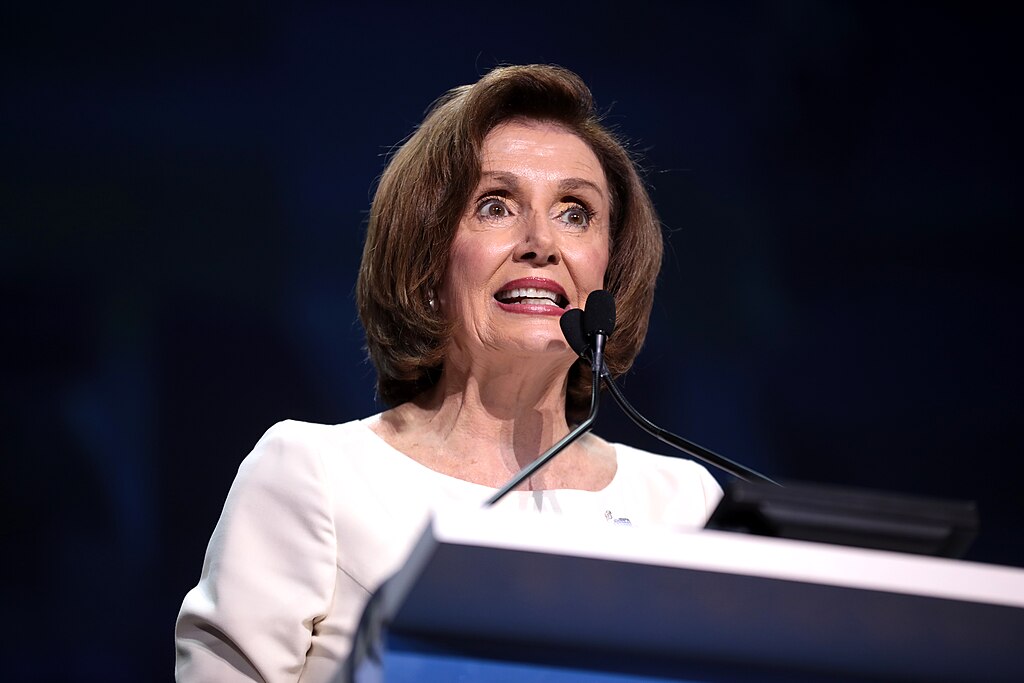In her upcoming memoir, "The Art of Power: My Story as America’s First Woman Speaker of the House," Nancy Pelosi recounts unsettling late-night phone calls with former President Donald Trump, providing a detailed account of their interactions that raises questions about his mental fitness for office. The memoir, set for release on August 6 by Simon & Schuster, offers a candid look into Pelosi’s concerns about Trump’s behavior during his presidency.
Pelosi, now 84, recalls a particular conversation in which Trump, now 78, called her around midnight to discuss political matters. Trump notably blamed former President Barack Obama for missile strikes he had ordered on Syria. Pelosi’s response was a straightforward suggestion for Trump to rest. This anecdote is among several that depict a president she describes as "imbalanced" and "unhinged."
The memoir details Pelosi’s apprehensions about Trump’s capability to serve as commander-in-chief, reflecting on various incidents where she found his behavior challenging to comprehend. She recounts an encounter at a memorial service for a renowned psychiatrist in 2019, where mental health professionals expressed their deep concerns about Trump’s mental and psychological health, indicating a perceived decline.
Pelosi’s narrative is not merely reflective but also critical. She highlights instances such as Trump’s response to the COVID-19 pandemic, his conduct during meetings, and his actions surrounding the January 6 Capitol insurrection. These episodes, she argues, underscored his dangerous unpredictability and detachment from reality.
In her memoir, Pelosi points to January 6, 2021, as a pivotal moment that exemplified Trump’s dangerous influence. As insurrectionists stormed the Capitol, Pelosi remained composed, a calmness she attributes to her prior awareness of Trump’s dangerous potential. She details his numerous actions that, in her view, displayed a blatant disregard for the law and profound instability, including his repeated claims of being the greatest president of all time.
The memoir also delves into Pelosi’s reflections on Trump’s presidency. She writes about her realization that she held more respect for the president's office than Trump himself, viewing him as an imposter who was somehow aware of his inadequacy for the role. Her accounts paint a picture of a leader whose actions, according to Pelosi, warranted intervention from his family and staff. This intervention never came, leading to significant consequences for the nation.
Pelosi’s revelations are set against the backdrop of a political landscape still grappling with the aftermath of Trump’s presidency and his continued influence as a leading figure in the Republican Party. Her memoir serves as a historical account and a cautionary tale about the importance of stable and competent leadership.
"The Art of Power" promises to offer readers an insider’s perspective on one of the most tumultuous periods in recent American political history through the eyes of a woman who navigated it from one of the highest seats of power in the country. As the release date approaches, the book is poised to spark further discussion and analysis of Trump’s legacy and Pelosi’s role during his administration.



 Netanyahu Suggests Iran’s Supreme Leader Khamenei May Have Been Killed in Israeli-U.S. Strikes
Netanyahu Suggests Iran’s Supreme Leader Khamenei May Have Been Killed in Israeli-U.S. Strikes  Israel Launches Fresh Strikes on Iran After Death of Supreme Leader Ayatollah Khamenei
Israel Launches Fresh Strikes on Iran After Death of Supreme Leader Ayatollah Khamenei  Trump Floats Ted Cruz for Future U.S. Supreme Court Nomination
Trump Floats Ted Cruz for Future U.S. Supreme Court Nomination  Australian PM Calls Alleged Western Australia Terror Plot “Deeply Shocking” After Arrest
Australian PM Calls Alleged Western Australia Terror Plot “Deeply Shocking” After Arrest  USITC to Review Impact of Revoking China’s PNTR Status, Potentially Raising Tariffs on Chinese Imports
USITC to Review Impact of Revoking China’s PNTR Status, Potentially Raising Tariffs on Chinese Imports  Trump Floats “Friendly Takeover” of Cuba as Rubio Reportedly Engages in Talks
Trump Floats “Friendly Takeover” of Cuba as Rubio Reportedly Engages in Talks  Trump to Address Nation as U.S. Launches Strikes in Iran, Axios Reports
Trump to Address Nation as U.S. Launches Strikes in Iran, Axios Reports  Trump Orders Federal Agencies to Halt Use of Anthropic AI Technology
Trump Orders Federal Agencies to Halt Use of Anthropic AI Technology  Israel Declares State of Emergency as Iran Launches Missile Attacks
Israel Declares State of Emergency as Iran Launches Missile Attacks  Dominican Republic Unveils Massive Rare Earth Deposits to Boost High-Tech and Energy Sectors
Dominican Republic Unveils Massive Rare Earth Deposits to Boost High-Tech and Energy Sectors  NYC Mayor Zohran Mamdani Meets President Trump to Tackle Housing Crisis and ICE Detentions
NYC Mayor Zohran Mamdani Meets President Trump to Tackle Housing Crisis and ICE Detentions  Trump Launches Operation Epic Fury: U.S. Strikes on Iran Mark High-Risk Shift in Middle East
Trump Launches Operation Epic Fury: U.S. Strikes on Iran Mark High-Risk Shift in Middle East  Iran Supreme Leader Ayatollah Ali Khamenei Killed in Israeli, U.S. Strikes: Reuters
Iran Supreme Leader Ayatollah Ali Khamenei Killed in Israeli, U.S. Strikes: Reuters  Germany and China Reaffirm Open Trade and Strategic Partnership in Landmark Beijing Visit
Germany and China Reaffirm Open Trade and Strategic Partnership in Landmark Beijing Visit  U.S.-Iran Nuclear Talks Show Progress but No Breakthrough Amid Rising Military Tensions
U.S.-Iran Nuclear Talks Show Progress but No Breakthrough Amid Rising Military Tensions  Pentagon to Halt Ivy League Programs for U.S. Military Officers Starting 2026
Pentagon to Halt Ivy League Programs for U.S. Military Officers Starting 2026  ICE Hiring Surge Raises Vetting Concerns Amid Rapid Expansion
ICE Hiring Surge Raises Vetting Concerns Amid Rapid Expansion 































